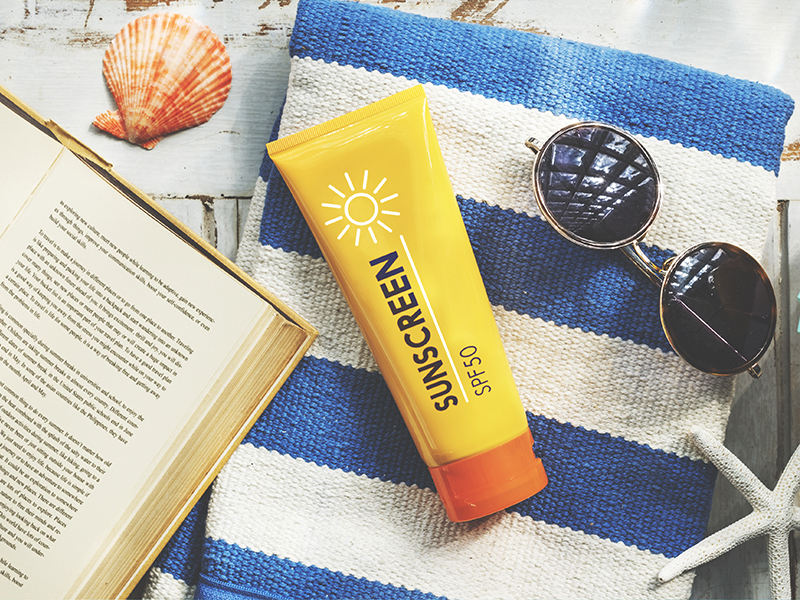By Olivia Moloney
It can be challenging-even frustrating-trying to decipher sunscreen labels. That’s why the U.S. Food and Drug Administration (FDA) is reviewing its regulations. To keep up with modern science and ensure safety, quality, and effectiveness, the FDA has proposed updating requirements for more over-the-counter products.
Certain active ingredients that are generally recognized as safe and effective (GRASE) can be marketed without undergoing a new drug application process through the FDA. Currently, only two marketed active ingredients-zinc oxide and titanium dioxide-are considered (GRASE).
Under the proposed regulation, products containing two other active ingredients-PABA and trolamine salicylate-are not considered GRASE for sunscreens and would need FDA approval before they are marketed. The agency says there is insufficient data on twelve other ingredients and has asked the sunscreen industry to conduct additional testing.
To help consumers identify key information, the FDA wants to see active ingredients listed on the front of packages, bringing sunscreens in line with other over-the-counter drugs regulated by the FDA.
A new maximum-labeled SPF value is also proposed. The current cap is SPF 50+ but the agency says new evidence shows additional benefits associated with broad-spectrum SPF 60 sunscreens.
Broad spectrum protects you from both UVA and UVB rays which can lead to premature aging and cause skin cancer. That’s why the FDA is proposing that all sunscreens with SPF values of 15 and above meet broad-spectrum requirements and, as SPF increases, broad-spectrum protection also increases.
Since sunscreens can be applied in a variety of ways, the FDA has different recommendations. For sunscreens that include sprays, oils, lotions, creams, gels, butters, pastes, ointments, and sticks, the agency says they are generally recognized as safe and effective (GRASE), but more data is needed for sunscreen powders.
Forms that are not considered GRASE include: wipes, towlettes, body washes, and shampoos. To receive GRASE status, they would have to go through the approval process for new drugs. When it comes to sunscreen-insect repellant combination, the FDA will not label products as GRASE because of incompatibilities between instructions for sunscreen and insect repellant.
The FDA proposal is available for public review and comment until May 28. You can submit comments at www.regulations.gov
Wearing sunscreen should be part of your daily routine. Use a minimum SPF 30 with broad-spectrum protection. Apply fifteen minutes before exposure and reapply at least every two hours or more often if you’re sweating or swimming. If possible, avoid extensive exposure between 10 a.m. and 4 p.m. when sun radiation is most harmful.
About Affiliated Dermatology: Created in Arizona, Affiliated Dermatology is led by Arizona physicians dedicated to Arizona patients. Founded in July 2002 by Dr. Richard L. Averitte, Jr., Affiliated Dermatology has grown to eight locations providing skin cancer prevention and treatment, medical and aesthetic dermatology services, and allergy testing. Dr. Averitte also established the Arizona Skin Foundation, a non-profit dedicated to providing financial aid to people with skin cancer who cannot afford treatment. Visit www.affderm.com for more information.





